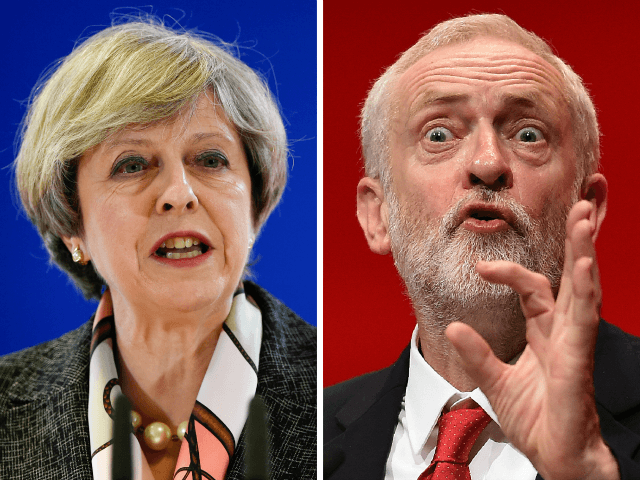Theresa May’s Conservative Party is heading into the June 8th snap election with a commanding 23 per cent lead over Jeremy Corbyn’s Labour Party, despite appearing shaky on immigration, foreign aid, and tax.
The Evening Standard newspaper, edited by David Cameron’s former Chancellor of the Exchequer George Osborne, reports an Ipsos MORI poll which shows Conservatives on 49 per cent, well ahead of Labour on 26 per cent.
The Ipsos research also appears to show the prime minister has already established a firmer base of support than either the official opposition or the Liberal Democrats, who hope to make something of a comeback as the party of choice for diehard European Union loyalists.
Survey respondents who say they will back the two Left-leaning parties are more open to having their minds changed than Conservative Party supporters, who seem to be more committed to the governing party.
In terms of who the public prefer for prime minister, 61 per cent threw their weight behind Theresa May compared with 23 per cent for Mr. Corbyn – giving the incumbent the best score Ipsos has ever recorded.
This apparent triumph comes despite a number of unpopular statements by the prime minister recently.
Chancellor Philip Hammond said the party may drop its pledge not to increase income tax, national insurance, or VAT last week, and Mrs. May refused to rule out tax rises when subsequently pressed on the issue.
She also insisted that a Conservative government would retain an unpopular legal commitment to spend 0.7 per cent of GDP on foreign aid – a policy which sees Britain give away billions of pounds to countries including China, India, and even North Korea whilst the armed forces, police, and public services face increasing strains at home.
The party has also appears to be weakening its public stance on immigration. Having failed to make any progress on its pledge to bring this down from “the hundreds of thousands to the tens of thousands” over the last year, Culture Secretary Karen Bradley now claims “it’s not about putting numbers on it” – although the target has not yet been officially dropped.
The Government’s commitment to ending Free Movement between the EU and Britain after Brexit also appears to be in doubt, with Foreign Secretary Boris Johnson saying that it may continue, at least for a time.

COMMENTS
Please let us know if you're having issues with commenting.